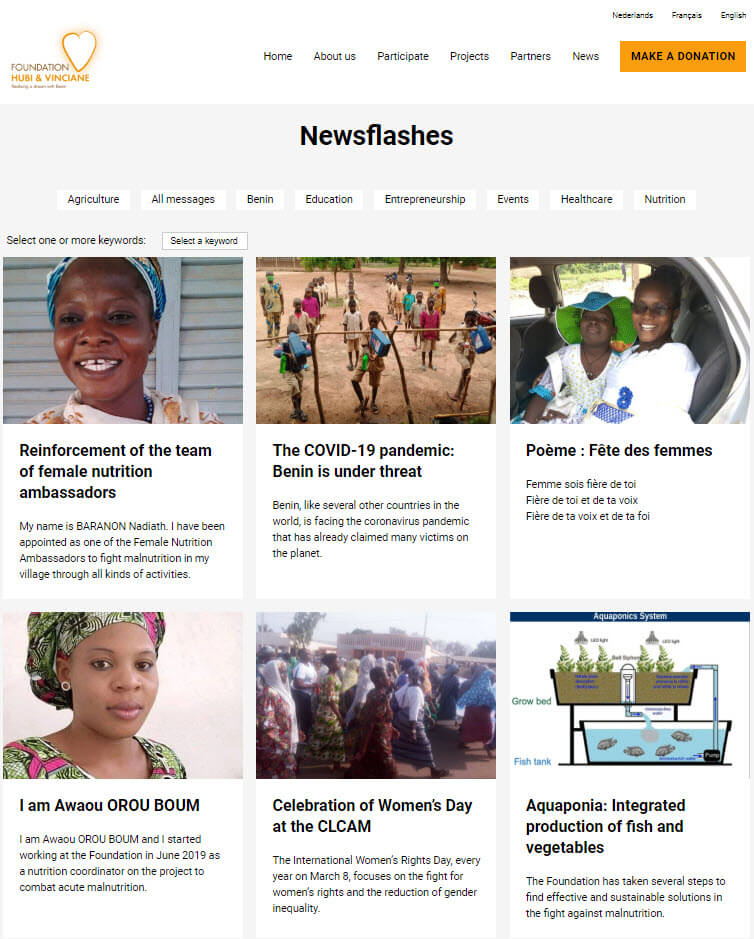The Hubi & Vinciane Foundation is 40 years old!

The Hubi & Vinciane Foundation (HVF) was created 40 years ago, in 1982, as a tribute to Hubert (Hubi) Adriaens and Vinciane Van Assche. Both had died in a plane crash a year earlier. At the time, Hubi was the medical director of the bush hospital in Papané, and Vinciane, his fiancée, was teaching science and mathematics at the college in Tchaourou. After this dramatic event, Hubi and Vinciane’s families decided to pursue their children’s dream and work. This is how the Hubi & Vinciane Foundation was born.
At first, the focus was on financial support for the hospital in Papané. Over the years, the Foundation has expanded its scope to include health care and nutrition, agriculture and entrepreneurship, and education. Today, FHV employs 21 people in Benin and is also recognized as an NGO. Through its various projects and support in Belgium and Benin, FHV has succeeded over the past 40 years in bringing about a thorough, sustainable and structural improvement in the living conditions of the population of the communes of Tchaourou, Parakou and N’Dali.
Health and nutrition

Thanks to the work of the Foundation, the small bush hospitals Saint-Martin in Papané and Saint-Jean-de-Dieu in Boko have been transformed into two zonal hospitals, each with 100 beds, and covering approximately 750,000 inhabitants, i.e., nearly 8% of the Beninese population.
The Foundation invests not only in infrastructure and technical equipment but also in knowledge and expertise by organizing regular exchanges with Belgian doctors and training the staff. And, of course, it doesn’t stop there: as soon as the budget is sufficient, thanks to donations, sponsorships, and grants, FHV will help finance the construction of a brand new maternity unit for the hospital in Boko.
The Foundation also co-invests in the network of local clinics and health centers for the population in the bush villages. For example, the medical center in Kassouala, a village near the Nigerian border, was recently renovated with grants from the province of West Flanders. The 25,000 inhabitants can now go there to receive quality essential health care.
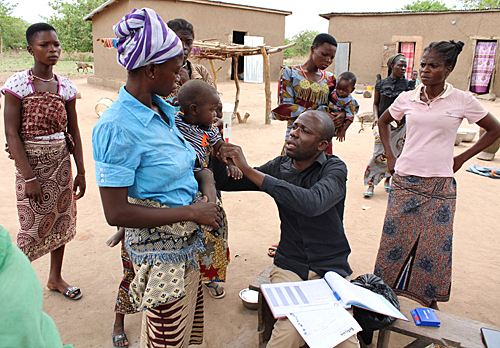
One of the spearheads of the Foundation is the fight against malnutrition. With the two partner hospitals, we launched the malnutrition project in 2015. Initially in 47, but now already in 63 villages, a team of 12 facilitators, led by the Foundation’s nutritionist, regularly examines all children under five. Each year, this concerns some 10 to 15,000 children.
Children suffering from severe malnutrition (an average of 100 per year) are sent to hospitals or health centers for intensive treatment. Children suffering from moderate malnutrition are followed up at home. At the same time, the nutritionist and his team organize awareness campaigns and cooking workshops on healthy and balanced nutrition for the children’s mothers and grandmothers.
In collaboration with a new NGO partner, the Leuven Cooperation, FHV recently launched the Balanced Diet Project for people with diabetes and hypertension. These two diseases are insidiously present in the elderly but active population. Their consequences can therefore be pernicious for the future development of the country.
Agriculture and entrepreneurship
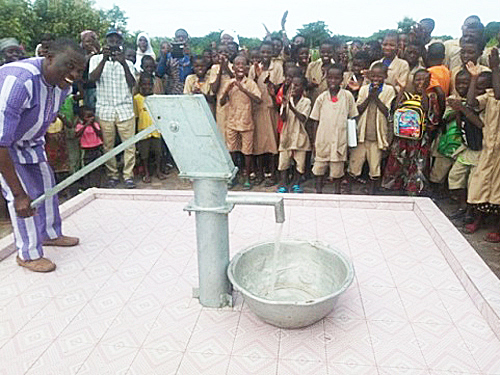
The Foundation’s two agronomists work closely with the Centre de Sokounon, a training farm run by the Missionary Brothers of the Countryside, to professionalize local farmers. They organize training courses at the center and visit farms to advise and support farmers in ecological techniques and innovative food production.
They organize dozens of training each year and reach over 10,000 farming families. The Foundation has invested heavily in improving the quality of the various crops and breeding programs, as well as in infrastructure, including building a demonstration field with irrigation and a water tower and housing for the Beninese and foreign trainees.
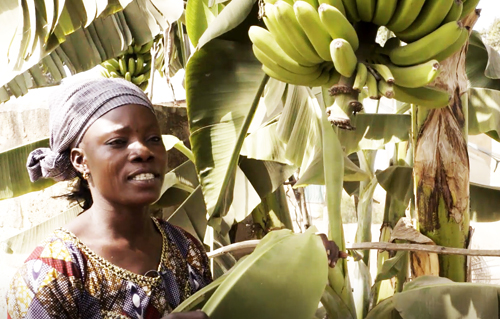
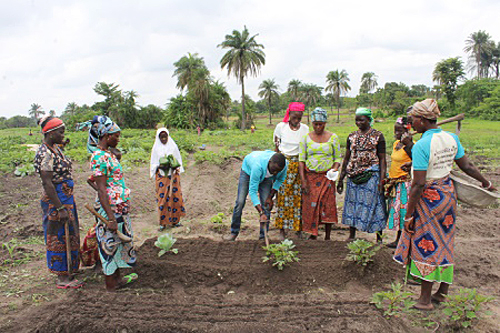
The banana project is a flagship project of SHV. Under the expert guidance of Professor Rony Swennen and partly thanks to grants from the city of Leuven, more than 50,000 banana cuttings have already been distributed to women and youth in 60 villages in the Borgou region. The agronomists taught them how to grow bananas and what products they could make from them. As a result, women have generated income and become more financially independent.
Very recently, the Foundation launched the community vegetable garden project. The first thirteen are now operational. Thanks to grants from several partners, the gardens have been equipped with an irrigation system to harvest and plant in both the dry and rainy seasons. A cooperative of 15 women manages each garden. These women, too, are now more financially independent.
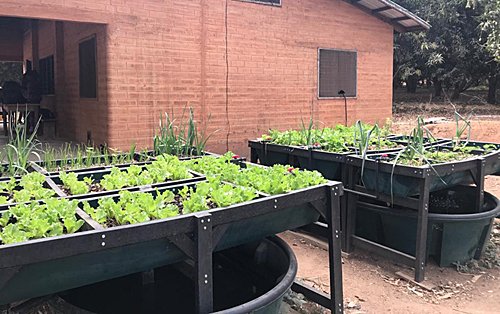
FHV has also introduced the innovative growing technique of aquaponics, a combination of aqua and hydroponics. To do so, it collaborates with a local expert, Professor Ibrahim Toko, from the University of Parakou.
The Foundation not only invests in the agricultural knowledge of the local population but also encourages entrepreneurship. Soon, the Foundation’s incubation center will open its doors. Here, under the guidance of experts, young entrepreneurs will have the opportunity to test ideas and launch their businesses.
The Vacation School project, funded by Materialise, encourages the budding entrepreneurial spirit. Here, final-year students receive an intensive “entrepreneurship bath” and can compete for a local university scholarship. Since 2012, 30 scholarships have already been awarded in this way. By the way, one of the former scholarship recipients is now leading the community vegetable garden project.
Education
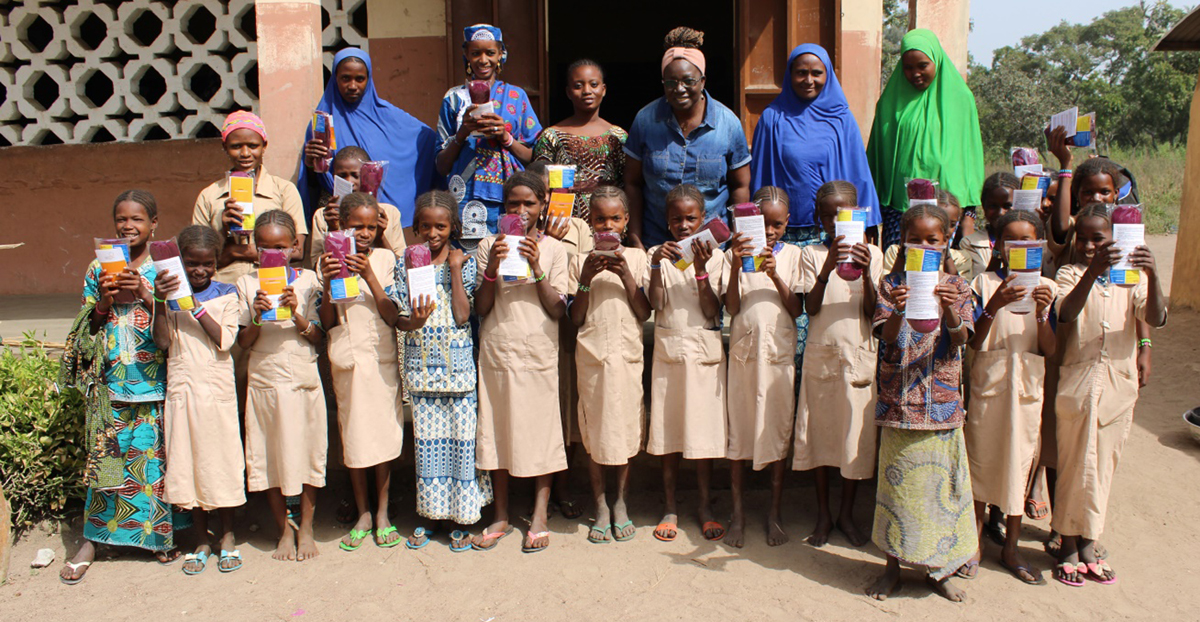
Initially, the Foundation supported four elementary schools located near the two hospices. Since then, there have been more than 60 elementary and eight secondary schools with approximately 20,000 students and staff[CVdV1] . The Foundation focuses on hygiene and healthy nutrition by investing in wells, sanitation facilities, vegetable gardens, and awareness campaigns. These wells are also open to residents of the surrounding villages.
And it is the Foundation’s agronomists who help the schools build and maintain the gardens.
Each year, SHV also coordinates the transportation of at least two containers, filled exclusively with valuable and quality materials pre-checked with the various Beninese partners.

